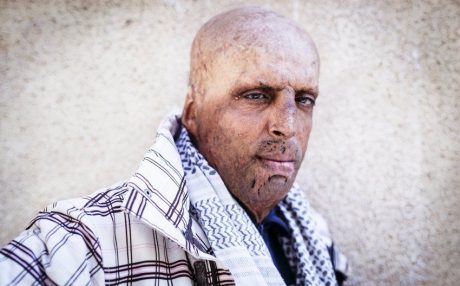It’s clear that the so-called “opposition” is in favor of “bringing down” President Rodrigo Duterte more than anything else. They want him ousted, continuing that long cherished but flawed belief that ousting people will lead to improvement in the country’s situation. The problem is, ousting people is anything but a solution, and it reflects lack of understanding of the related issues and a knee-jerk reaction mentality.

Replacing the person will not remove corruption. People thought that after bringing down a dictator, someone incorruptible would magically appear and set things rights. Sadly, the reality that so many other people are corrupt and that they are the ones that replaced the dictator. Put away Ali baba, and 40 thieves come to take his place. It’s so easy for a hanky-panky-filled politician to claim to be “uncorrupt” and take the place of whoever they bumped off.
Look at Tunisia. Hosni Kaliya, one of the people who set himself on fire in protest (but survived), spurring the Arab Spring revolts and the ouster of Zine El Abidine Ben Ali, regretted his action. He says while they seem freer, life remains difficult. He probably hoped that life would be more comfortable (for others, at least) after a protest, but it was the same. As for the other guy who self-immolated and died, Mohamed Bouazizi, his family has been on the receiving end of harassment from people who blame their dead relative for making things worse. On relative even said life was better under the term of the now-ousted president. Ousting Ben Ali did not make life easier. Apply that to the local situation, many people now believe we are worse off after the EDSA Revolution.

Sure, removal from a position is needed when the rules call for it. But that should be done because it’s the rule, not because you just want it. There are times when ousting is not possible; sometimes, you have to accept it. A better measure would be to keep holding people in that position accountable, making more demands and doing the check-and-balance work. That is what citizens should actually be doing. Then there are laws to enforce, some to change, business environments to make better for people, freeloading to rebuff, and more.
Here’s a moot point, but worth mentioning here: you know what has been said about putting people in jail, such as a murderer. Justice has been served. A criminal has been put away to prevent him from committing any crime while incarcerated. But you can’t bring back the dead, and restitution and recovery make up a different thing. For example, for example, if a breadwinner was killed, those he left either scramble for “assistance” or will have to move on with life and support themselves. The latter is always the better option.
Why Shaming of People Fails
But let’s say, you have a situation where ousting someone is out of the question. It’s not just about people in power; let’s say you have this annoying neighbor you hate, he may be homophobic, has strong opinions you hate, has a hobby you detest, etc. Unless he’s proven to be a threat to you, you can’t have him removed. It’s frustrating, and you hate it. So what do you resort to?Shaming the person.
Trolling, insulting and badmouthing people online or offline has been the resort of some of the “opposition.” Jover Laurio has been cited often here as an example. But it hasn’t helped. It has only deepened conflict and actually brought more people against them. In fact, a lot of the shaming methods used are even based on falsehoods – the real “fake news.”
Shaming people never solved anything long-term. Todd Leopold on CNN says some shaming campaigns reduced homophobia, but that seems only an illusion to me. He does admit online shaming has done more harm than good. As I mentioned before, one gay writer agrees that shaming homophobics is “no longer OK” – and it never was. Shaming campaigns may shut people up temporarily, but it can’t destroy one’s resolve to uphold what they believe.
But let’s look at why shaming and hurting other people is so popular: because it sends dopamine to the brain. As Leopold wrote, “outrage and demonization can be more satisfying than compassion.” Perhaps it’s an attempt to get over the frustration that someone you dislike cannot be removed. Might as well try to make them feel miserable as a consolation. It may make one feel better, but that’s that. No other substantial results. And let me remind you, that “feeling better” can be ruined by the consequences, such as the one you are shaming getting back at you even better than you can. In this way, shaming is not a “brave attempt,” but an admission of failure.
Perhaps activists resort to shaming because they are unable to support their advocacy thoroughly. Or they don’t really support their advocacy at all, and are just pretending. All they know is attack other people – probably because they don’t know any better thing to do in life.
Calls for ousting and shaming are now futile and irrelevant. Instead of ousting and attacking people, people should just hold their representatives responsible. Mechanisms are in place for this, but it needs work. We need to participate in the process rather than just insult them on Facebook. And if ever we are to participate in discourse, political or otherwise, we should stop letting our basic instincts take over us and we should apply careful, sober thinking in it.
And at times, who you want to oust is never meant to be ousted. In fact, instead of people, we must oust our bad habits and wrong beliefs. Many things that we cherish are among the practices that bring us down, and these are the real contributors to our societal maladies. Removal of these continues to be the thrust of this blog. This is also a more long-term solution, as ousting someone is only for the short-term.

No comments:
Post a Comment